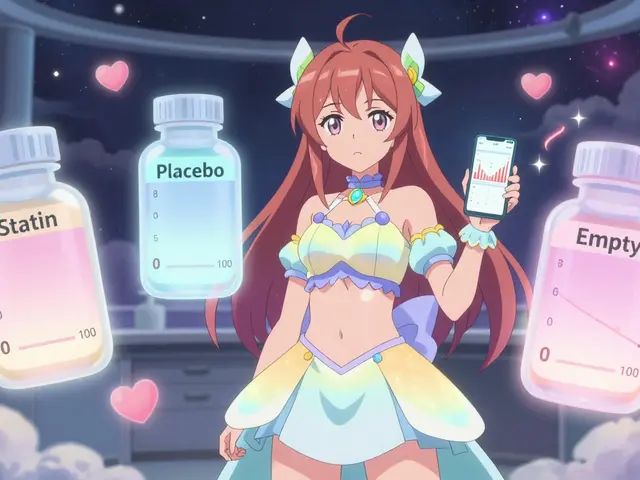Acamprosate – A Practical Guide to Alcohol Dependence Treatment
When working with Acamprosate, a medication that helps keep the brain’s chemistry stable after stopping alcohol. Also known as Campral, it targets the glutamate system to reduce cravings and support long‑term sobriety. Relatedly, Alcohol Dependence, a chronic condition marked by compulsive drinking and withdrawal symptoms often requires a mix of medicines, counseling, and lifestyle changes. Another common option is Naltrexone, an opioid‑receptor blocker that cuts the pleasure response to alcohol. Together, these tools create a broader safety net for people trying to stay clean.
Acamprosate works by balancing glutamate and GABA signals, the two chemicals that go haywire when a person quits drinking. Think of it as a thermostat for the brain: after the “heat” of alcohol withdrawal, the drug cools down the overstimulated neurons, making cravings less intense. The typical regimen is 666 mg three times a day, taken with food to improve absorption. It’s most effective when used after a period of abstinence—usually at least three days without alcohol—so the brain can start resetting.
Semantic triples in action: Acamprosate modulates glutamate activity; reliable sobriety requires both medication and behavioral support; and medication choice influences relapse risk. Because it doesn’t affect the opioid system, Acamprosate can be paired safely with Naltrexone, giving a dual‑action approach: one blocks cravings, the other dulls the reward. This combination is often recommended by specialists for people with high‑risk triggers.
Who Should Consider Acamprosate and What to Watch For
Ideal candidates are adults who have already achieved a short period of abstinence and want to prevent a slip‑back. Kidney function matters—a simple blood test ensures the drug won’t build up to unsafe levels. Common side effects are mild: diarrhea, upset stomach, or a metallic taste. If these persist, doctors may adjust the dose or suggest an alternative. It’s also crucial to keep up with counseling or support groups; medication alone rarely guarantees success.
Beyond the medication, patients often ask about lifestyle tweaks that boost results. Staying hydrated, getting regular exercise, and maintaining a structured daily routine all reinforce the brain’s new balance. Some find that adding a multivitamin helps fill nutritional gaps left by years of heavy drinking. Of course, every plan should be personalized—talk to a healthcare professional to tailor the dose, monitor labs, and set realistic goals.
Below you’ll find a curated set of articles that dive deeper into Acamprosate’s science, compare it with other treatments, and share real‑world tips for staying on track. Whether you’re just starting the recovery journey or looking for ways to fine‑tune an existing plan, the posts ahead cover the full spectrum of questions you might have.
Acamprosate vs Alternatives: Which Alcohol‑Dependence Medication Works Best?
A deep dive into Acamprosate, its mechanism, and how it stacks up against Naltrexone, Disulfiram, Baclofen and other options for alcohol dependence. Learn pros, cons, dosing, side‑effects and practical tips.
About
Medications
Latest Posts


Buy Cialis Black Online: Secure and Fast Delivery Options
By Marcel Kornblum Dec 8, 2023

Top Alternatives to Valtrex for Herpes Treatment in 2024
By Marcel Kornblum Oct 22, 2024

Nocebo Effect and Statin Side Effects: How Expectations Shape Your Experience
By Marcel Kornblum Jan 15, 2026

